Ag Talk | Adding emotions and professionalism into the medium of the masses: Radio City's Apurva Purohit
Adgully: Can you share with us some of the defining moments of your career in media?
Apurva Purohit: My association with media has been for approximately twenty years now. For twelve years it was from that side of the fence where I was planning, buying and analysing media. So one of the first defining moments would be when we actually set up Lodestar in 1995. We started off with a completely new concept. Moreover Lodestar also won the first ever Media Agency of the year award. And even running the whole EMVIEs awards' committee for around ten years was momentous, I just handed it over the last year. I was also a part of the team that launched the channel Zoom. However my most memorable defining moment with Radio City would be when we won 16 bids.
Ag: How have seen radio as a medium evolving over the years?
AP: I joined the radio industry in 2005 and co-incidentally it was the same year when Phase II was announced. So honestly I have not been part of the industry when it went through a real difficult time initially when there was a high license fees that had to be paid etc. I believe that post 2005 the radio industry has seen tremendous progress, because the major thing that happened was the license fee regime underwent a change. Thus the industry is slowly growing also in terms of revenue. So the radio industry could further invest money on marketing, on talent, on buying new licenses. According to me the take-off point was 2005. Now, it has been almost five years and the being a young industry it has also seen a few challenges. It has seen a recession in just the five years of existence really. At the same time it has seen a humongous amount of competition. So I believe the radio industry has gone through a lot of different phases and at the same time has constantly been competing with the traditional media and with the new age media.
Ag: What are some of the challenges and opportunities for Radio City as a radio station?
AP: For a stand-alone media organisation and in that sense a medium-sized media organisation, I think we have done very well. We have grown at 30% this year, we have done very well in our ratings and we have a good team on board. But yet again being a stand-alone media organisation is a challenge in itself.
Radio City is owned by a private equity fund and in that sense it is extremely professionally managed. So in that sense for us as a team we have had an opportunity to showcase a different kind of media organisation which is based on processes, systems and professionalism. We have also had a lot of management bandwidth and thus attrition level in our organisation also has been very low. Going forward, if Phase III comes in we have a lot of opportunity to grow in terms of starting more stations. We have also invested in digital radio, so internet radio is doing very well for us which has got around 14 lakh listeners.
Ag: Radio City went through a low phase when it lost some of its top leaders, how has it moved on from there?
AP: I think sometime between 2006 and 2007, there was a time when competition getting more fierce and a lot of new players entered the market. That was when not only us but most of the older players went through a lot of attrition and change. The older radio stations became the training ground for the radio industry. Post that phase the attrition levels have been very low.
Ag: Can you point out Radio City's key three strengths?
AP: The organisation's key strength I would say is its stable management, a very warm and people oriented culture and great music. I think our music and our friendly RJ's are the key differentiators. Moreover the kind of content we have with us and we deliberately focus on having RJs who are warmer and are not into bashing and being rude. Moreover I think Radio City is high on emotional quotient than professionalism as an organisation.
Ag: How do you think 3G's entry will change things for the radio industry?
AP: 3G will enable easy access to the internet and in any case 20-30% of radio listenership today is happening through the mobile phone. So one part is will 3G impact terrestrial radio in any manner, however internet radio might develop and take off even more.
Ag: Do you think radio is still a metro phenomenon or has it penetrated well in the smaller markets across the country too?
AP: The penetration is really dependent on the licenses, so when we talk of private FM it is available in 91 cities based on licenses available. So in that sense there is an artificial restriction on its penetration. However I would like to point out that in semi-urban markets radio has been able to play a role of influencer for the listeners. Moreover the RJs in these smaller markets are kind of an icon for the listeners.
Ag: Has the advertising industry been able to utilise the potential of the medium to the fullest?
AP: Radio's share in an advertising pie is still 4%, which is not good because world average is around 8-12%. However it has a huge potential to double itself. The advertising industry has not been able to utilise the medium's potential to the fullest and I think there is a lot to the medium. We are getting there and all the radio stations are collectively working at making it work better and educating the advertisers. I would like to point out that television has used radio very well and they have been our largest advertisers as a category.
Moreover around 80% of the utilization of the medium is for brand-building and tactical promotions. The activation part is just around 20%. I must say that an on-air and on-ground activity in combination works well than just an on-ground activation.
Ag: Any message for young talent...
AP: I think radio is a fabulous medium if people want to be a part of it. I think print etc are reaching a plateau whereas radio is still growing. But they should come and join this medium only when they love the medium and are ready to evangelise the medium. You have to believe in the medium. | By Prabha Hegde [prabha(at)adgully.com]



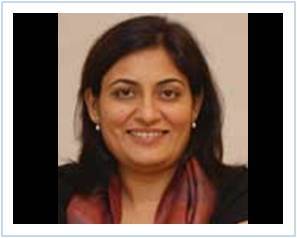

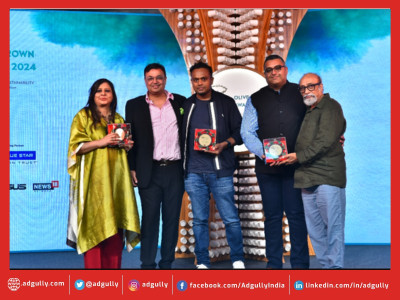
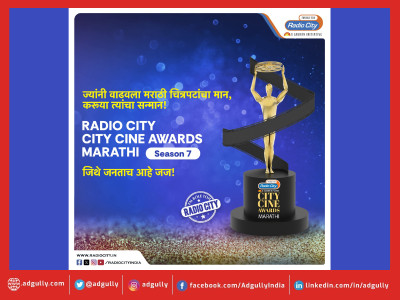
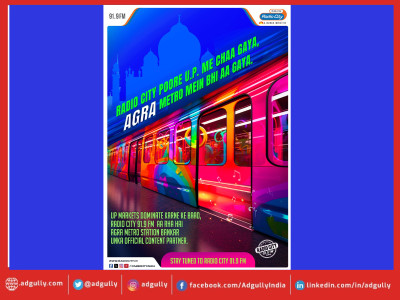
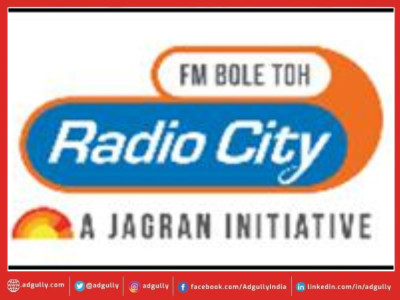
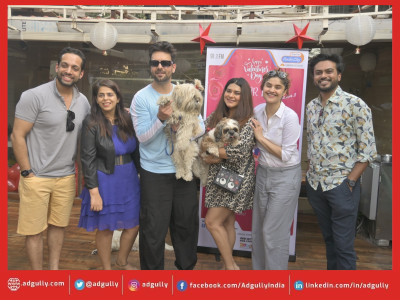
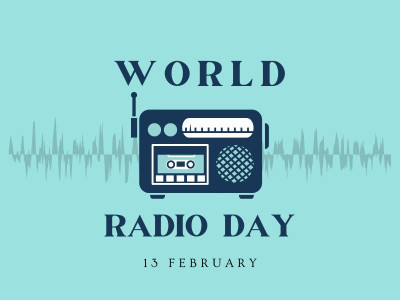


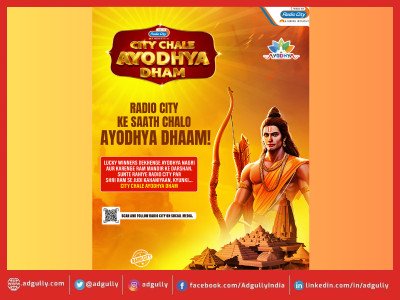

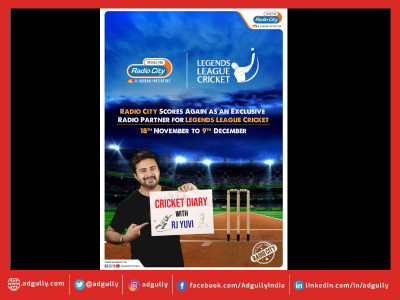


Share
Facebook
YouTube
Tweet
Twitter
LinkedIn